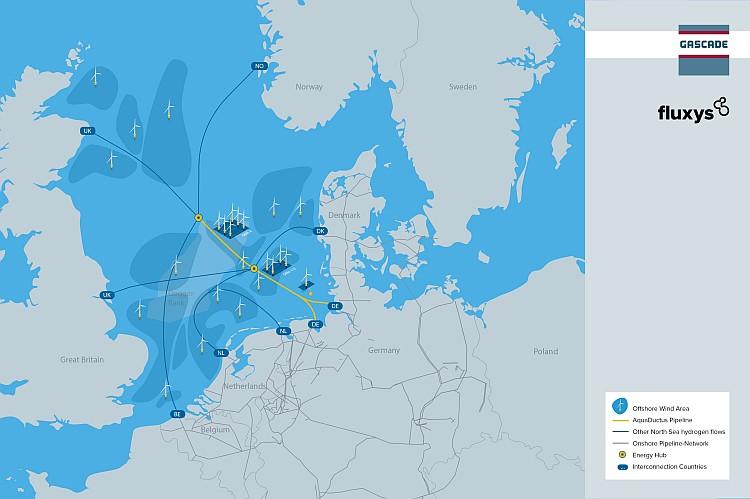Planning For A North Sea Hydrogen Pipeline Network

Det Norske Veritas, more commonly known as DNV nowadays, has just completed a study asserting that a hydrogen pipeline network in the North Sea would be feasible and doable, highlighting the significant advantages of an offshore hydrogen backbone in the North and Baltic Seas.
Indeed, the North Sea has the potential to become the site of massive offshore hydrogen production from offshore wind and a hydrogen pipeline network. The study says the pipeline network would further enhance connections between northwest European countries.
"The EU expects demand for climate-neutral hydrogen to reach 2,000 terawatt hours (TWh) by 2050, and DNV sees the potential to produce 300 TWh/a of hydrogen using electricity from offshore wind farms in the North Sea by 2050," said Ulrich Benterbusch, Managing Director at Germany's GASCADE, builder and operator of large gas transmission pipelines.
Benterbusch adds that a North Sea hydrogen network would make a significant contribution to reducing dependence on energy imports: "This positive aspect for increasing supply security can hardly be valued highly enough after the experiences of the recent past."
According to the study, an investment of $15.9 billion-$23.3 billion (15–22 billion euros) could build the North Sea hydrogen backbone with pipelines of a total length of 4,200 kilometers (2,610 miles).

